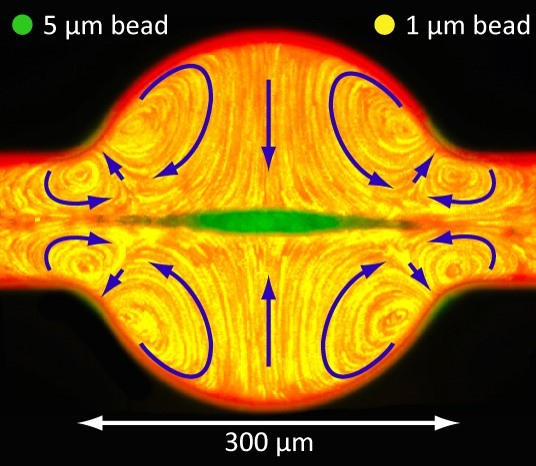The course contains the following parts:
- Controlling equations in microfluidics
- Piezoelectricity and acoustic connection
- Ultrasonic resonances in microsystems
- Acoustic radiating forces
- Acoustic streaming
- Particle manipulation and capture
- Different applications in the life sciences
